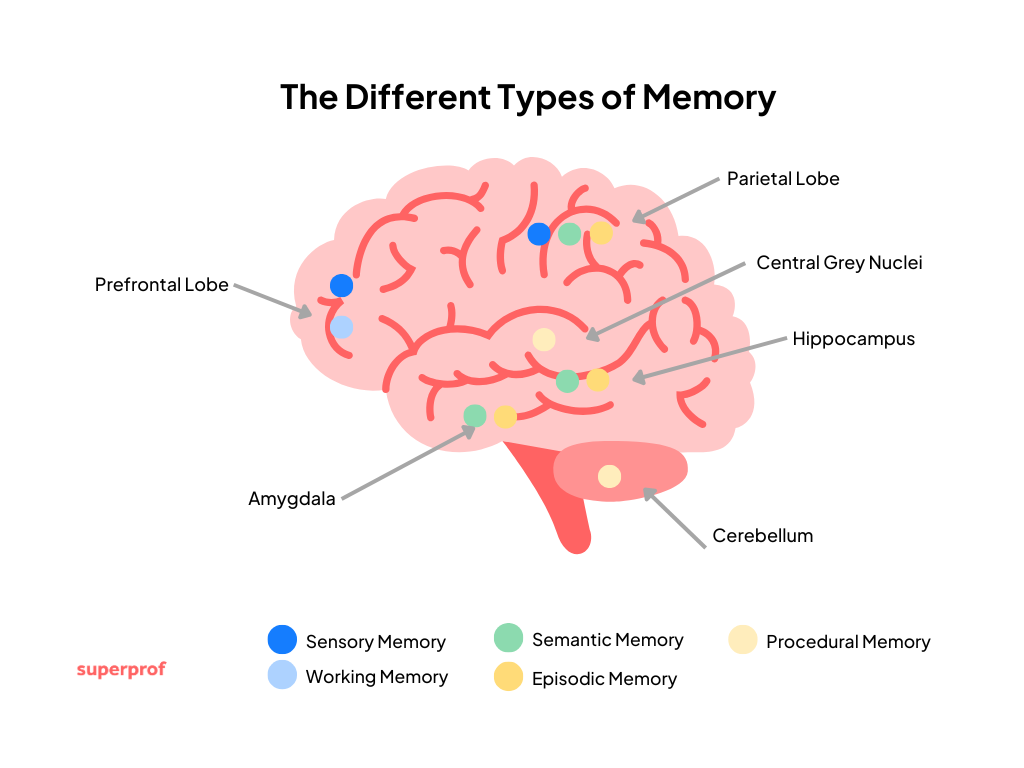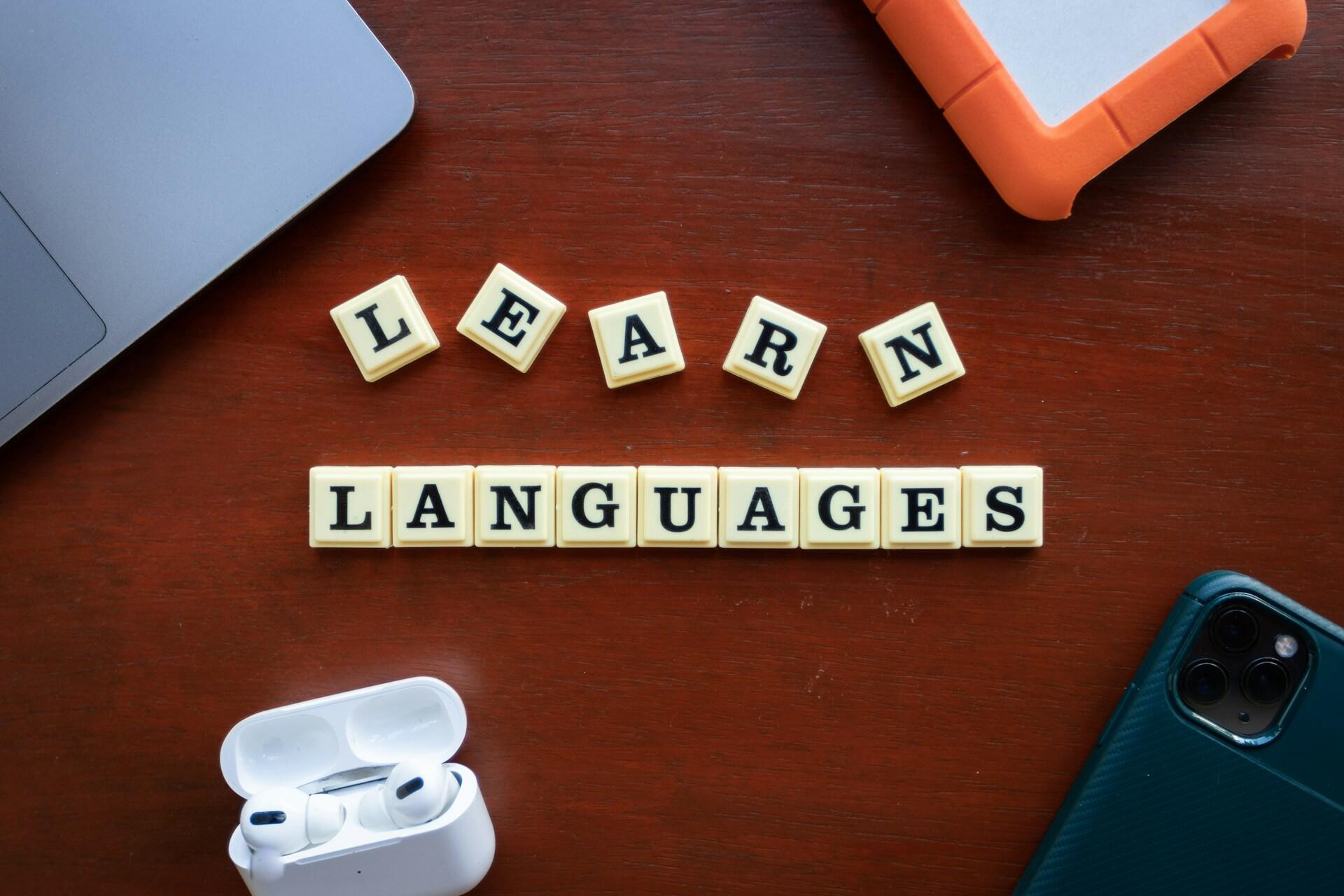Effective learning relies on both understanding the different types of memory and identifying universal strategies that work. And above all… being aware of your own learning profile.
Are you more visual, auditory, or kinesthetic in the way you absorb new knowledge? Our “Discover Your Learning Type” test is designed to help you better understand your unique learning style. By answering a series of thought-provoking questions, you will delve into the depths of how you assimilate information and thrive educationally.
Test yourself with the quiz below to find out your style!
Quiz
Quiz :
What Are the Main Types of Memory?
We often talk about memory in the singular, but in reality there are several forms of memory, which work together to encode, store, and retrieve information (yes, just like a computer!)

Sensory memory
This is the ultra-short-term memory that processes visual, auditory, or tactile stimuli. It lasts only a few seconds, but it is the first gateway for all information.
Short-term memory (or working memory)
This allows us to temporarily retain a small amount of information (usually 5 to 9 items according to Miller's law1). It is crucial for manipulating information in real time: doing mental arithmetic, following instructions, or repeating a phone number we have just heard.
Long-term memory
This is the type of memory that stores information long-term. It is divided into several subcategories:
- Declarative memory: memories that can be expressed in words. It includes:
- Semantic memory (general knowledge: capital cities, definitions, etc.)
- Episodic memory (personal memories: your last birthday, your first day of high school, etc.)
- Non-declarative memory:
- Procedural memory (related to automatic actions: riding a bike, typing, etc.)
- Habits, conditioned reflexes, etc.
These types of memory do not all function in the same way. That is why effective learning relies on several levers, rather than a single magic method.
Not Everyone Learns in the Same Way: We All Have Our Own Learning Style!
Even though we all have these types of memory, we don't use them in the same way. This is explained by learning profile theory, which distinguishes between several natural preferences depending on the learner:
- Visual learners retain what they see better (diagrams, images, mind maps, etc.)
- Auditory learners retain what they hear better (oral lessons, discussions, podcasts, etc.)
- Kinesthetic learners learn better by doing (hands-on activities, concrete experiences, movements, etc.)
💡 For example: when learning a language, a visual learner will retain written words more easily, an auditory learner will retain oral repetitions, and a kinesthetic learner will retain role-playing or simulations.
Knowing yourself and your learning style or styles is therefore the first step in choosing learning methods.

🌎 Universal Learning Rules
Even if preferences differ, certain methods work for everyone, regardless of your profile:
Spaced Repetition
Spaced repetition systems (SRS, Anki, etc.) exploit the spacing effect to anchor information permanently in long-term memory.
Elaborative Encoding
Associating a concept with an image, a story, or an emotion reinforces its memory. This technique combines mental imagery, mnemonics, the method of loci, and more.
This technique involves associating what you want to memorise with a mental journey through a place you know well, such as your home, your daily commute, or an imaginary building4.
Self-assessment
Regularly testing yourself (quizzes, assessments, oral explanations) activates the testing effect, which is much more effective than simply rereading.
Restorative Sleep
Sleep consolidates learning: make sure you get enough sleep after a study session to promote memory consolidation.
It's recommended by experts to sleep between 7 to 9 hours per night.
Attention and Emotion
Attention filters information, emotion marks it. Learning in a calm, focused, and motivated state maximises memorisation.
Optimise Your Learning By Discovering a Little More About Yourself!
Learning about your learning profile (visual, auditory, or kinesthetic) and learning style allows you to:
- Optimise your methods according to your natural strengths.
- Avoid strategies that are ineffective for you.
- Combine approaches tailored to each type of memory (declarative, procedural, etc.)
Knowing yourself also means recognising that you can combine several modalities: visual learners can also work on oral skills, auditory learners can create diagrams, etc. It is through flexibility and experimentation that you discover what really works for you.
Whether you are looking for more suitable study strategies or simply want to learn more about yourself as a learner, this test will reveal exciting insights.
Get ready to explore the different facets of your learning style and discover new and effective ways to excel in your studies. Are you ready to explore the paths that lead to your educational success?
Each type of memory has its own function: perceiving (sensory), manipulating (working), storing (long-term), and automating (non-declarative). Everyone learns according to their own profile, but we can all benefit from common strategies such as spaced repetition or elaborative encoding. The real key to effectiveness lies in self-knowledge: testing methods, adapting, adjusting, and combining those that produce results. This is how learning becomes more fluid, sustainable, and personal.
Bibliography
- Miller, G. A. (1956). The magical number seven, plus or minus two: Some limits on our capacity for processing information. Psychological Review, 63(2), 81–97. [article] Available at: <https://doi.org/10.1037/h0043158> [Accessed 7 August 2025]
- Fleming, N. D., & Mills, C. (1992). Not Another Inventory, Rather a Catalyst for Reflection. To Improve the Academy, 11(1), 137–155. [article] Available at: <https://doi.org/10.1002/j.2334-4822.1992.tb00213.x> [Accessed 7 August 2025]
- Cepeda, N. J., Pashler, H., Vul, E., Wixted, J. T., & Rohrer, D. (2006). Distributed practice in verbal recall tasks: A review and quantitative synthesis. Psychological Bulletin, 132(3), 354–380. [article] Available at: <https://doi.org/10.1037/0033-2909.132.3.354> [Accessed 7 August 2025]
- Yates, F. A. (1966). The Art of Memory. University of Chicago Press. [book]
Summarise with AI:















